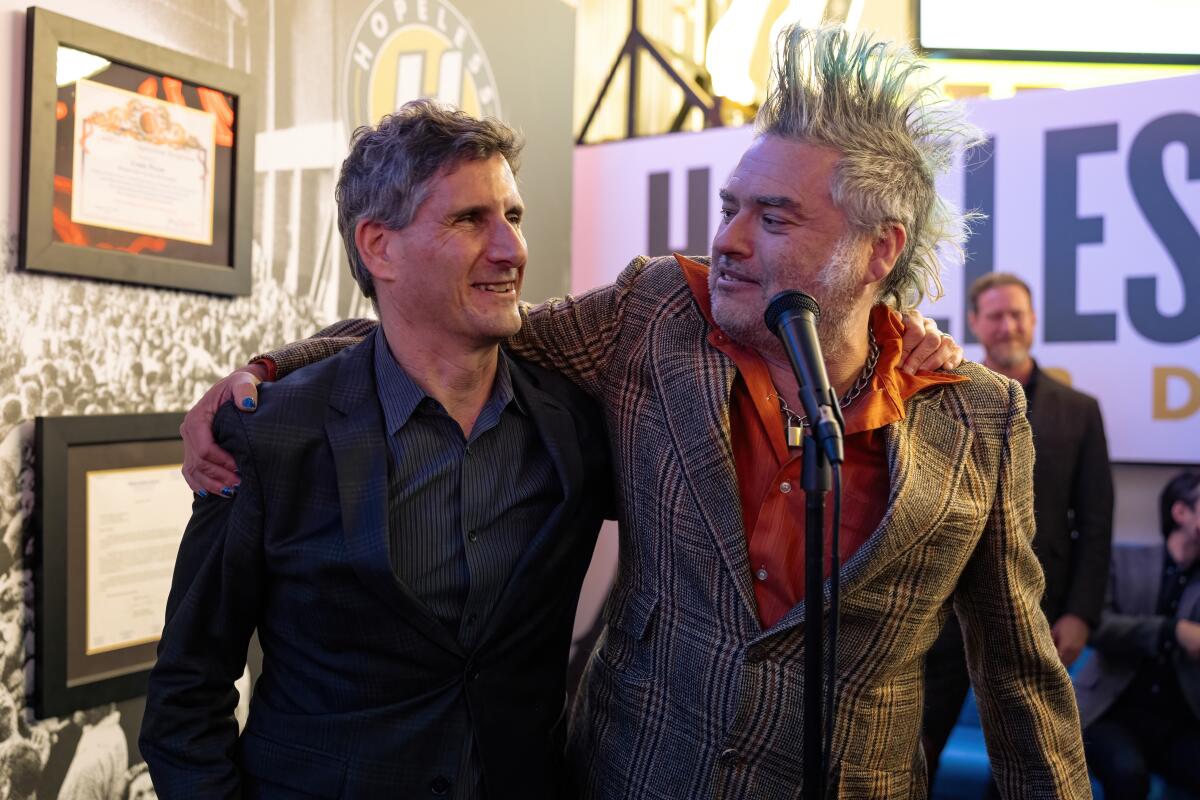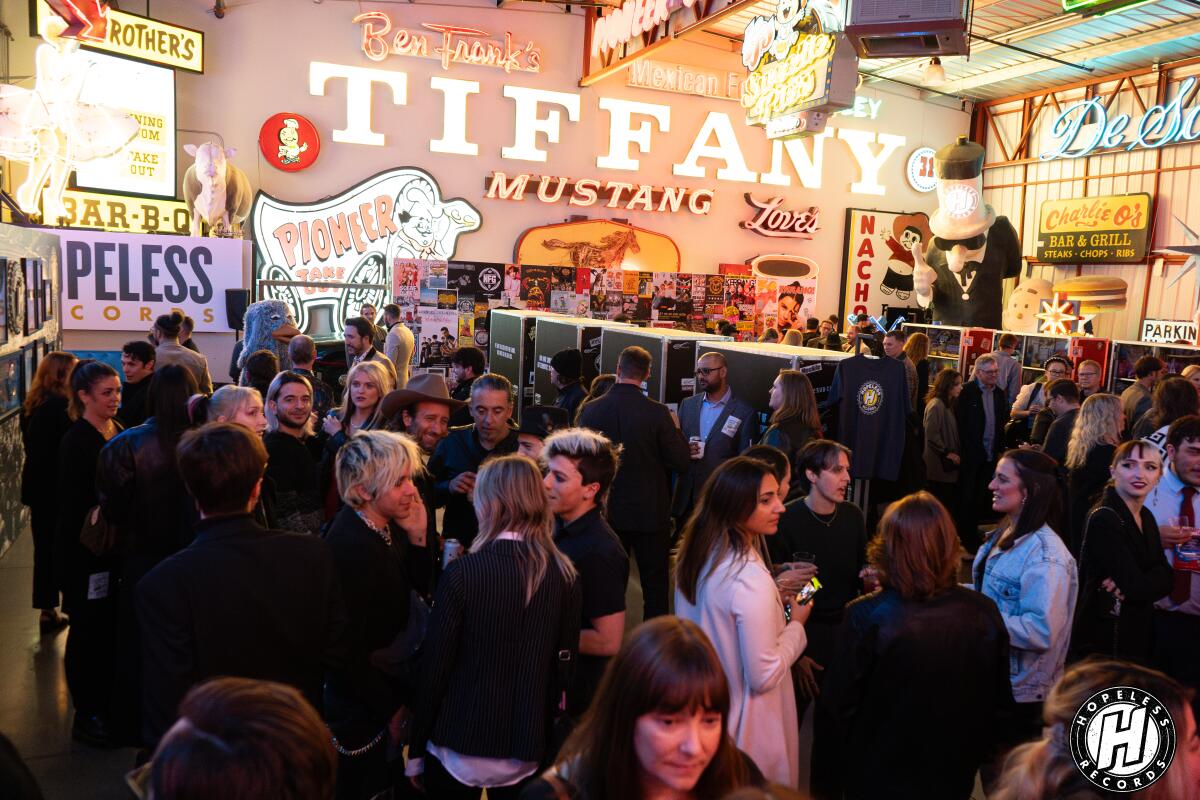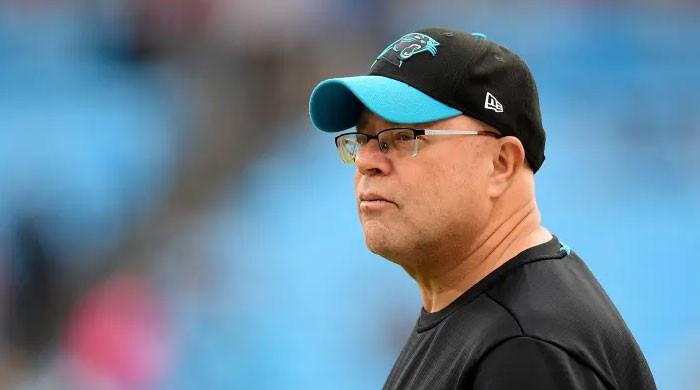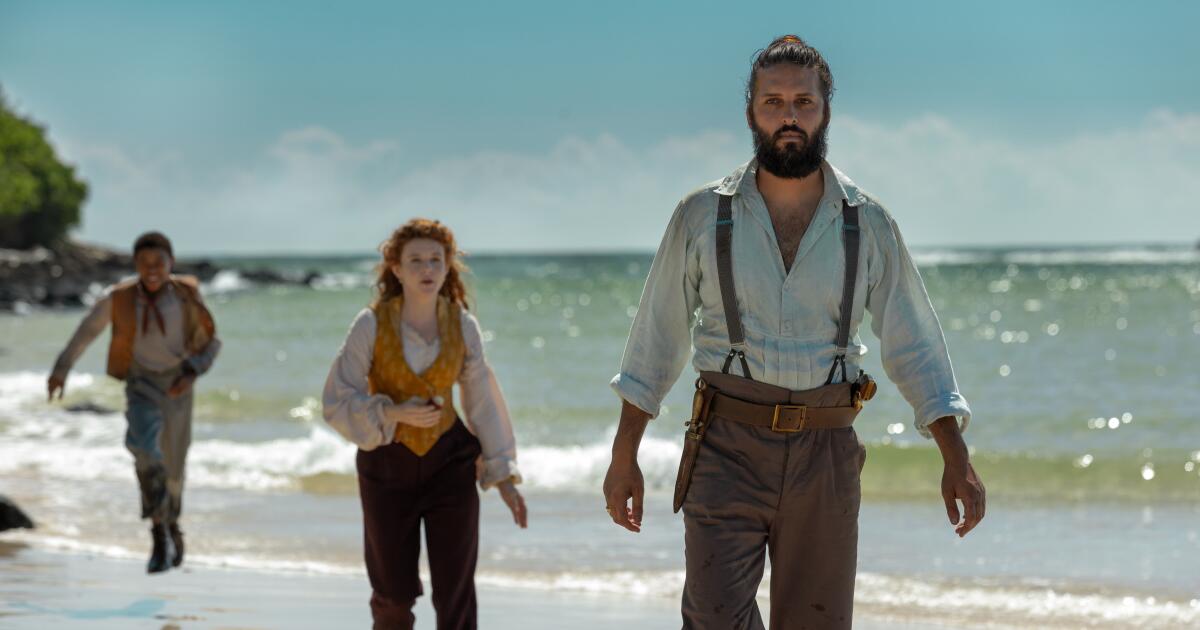Just a few years before founding Hopeless Records, when he was in his early 20s, Louis Posen thought he saw a future for himself in the film industry.
That was before doctors diagnosed him with retinitis pigmentosa at age 19, leaving him with the knowledge that he would lose his sight at a very young age.
“Being in a doctor's office at 19 and hearing that you're going to slowly lose your sight with no treatment or cure, there's no hope, so I guess I had that stamp on my back of being 'desperate' from that moment on.” Posen says. “I was a film student who thought I could change the world through media, and I think [the diagnosis] “It drove me.”
But just before he became legally blind in 1994, at age 23, Posen picked up a book about running an independent record label written by an employee of SST Records, the legendary South Bay label founded in 1978 by Black Flag guitarist, Greg Ginn. Between that book and a budding friendship with Mike “Fat Mike” Burkett of the band NOFX and his label Fat Wreck Chords (one that was born when Posen volunteered to produce, direct and finance a music video for the single “Bob” by 1992's NOFX), the young Punk had everything he needed to push his budding career aspirations in a different direction.
Louis Posen, founder of Hopeless Records
(Ariel Goldberg)
“I called 411, asked for Epitaph Records and they gave me [Burkett’s] number,” Posen recalls. “I called him and told him I had some money to make a music video for him and we've been friends ever since. When I started the label, Mike was one of the few people I knew in the music business, so I called him and said, 'Hey, how do you put out a record?' He put me in touch with a lot of the staff at Fat Wreck Chords and they were very helpful. I remained friends with that entire team for a long time. “They were a great help in the early years of Hopeless.”
From that first 7-inch EP (“11oz.” from 1993). from Huntington Beach punk band Guttermouth), Posen launched what would become one of the most consistent and impactful labels of Southern California's alternative punk-hardcore scene. Beginning with '90s pop-punk and ska before moving into the rise of local rock artists like Thrice and Avenged Sevenfold, Hopeless established itself as a haven for emerging and veteran artists alike, eventually featuring comeback albums. for bands like Taking Back. Sunday and newly found Glory.
But perhaps most importantly, Posen and the rest of the Hopeless team have stayed true to themselves while evolving with the times. While some independent labels dominate a single musical generation only to lose relevance when those bands fall out of popularity, Hopeless has maintained its position over three decades, with a roster that includes some of today's emerging acts (like Destroy Boys) along to timeless veterans (like Bayside).

Posen and NOFX's Fat Mike Burkett at Hopeless Records 30th Anniversary Party
(Ariel Goldberg)
As Burkett can attest, resisting trends and waves of popularity within the music world is no easy task for any label.
“When I went to the Hopeless 30th anniversary party, it was very different from Fat Wreck Chords, because there were a lot of young, vibrant, new bands that are basically kids,” Burkett says. “Children like to listen to children; 14 year olds don't want to listen to 60 year olds. Hopeless has been around for a long time, but they are still very current. I think they're always paying attention to what's going on, which is not the way I run my label. I have an aversion to signing young bands that want to be popular. It's not a good business decision on my part, but Louis understands things like pop-punk and I don't.”
The label celebrated its 30th birthday with the launch of a traveling exhibition that debuted in early December at the Valley Relics Museum in Van Nuys (and will be at both the Rock & Roll Hall of Fame in Cleveland and the Punk Rock Museum in Las Vegas at the end of this year. ). The exhibition has forced the Hopeless team to reflect much more and look back on their own history than they usually do. Being one of the most relevant and evolving alternative indie labels generally means always looking forward and never spending too much time in the rearview mirror.
“Building this 30th anniversary museum exhibit has been a crazy journey, just going around my garage with people from our team and finding things I had no idea still existed,” Posen says. “I'm always trying to live in the moment or think about how I can be better, so I rarely spend time on that kind of reflection. “It's been really cool to see all the people who contributed to this, and it's been amazing to see how different things are in this business, as well as how many things are exactly the same.”
One aspect of Hopeless that has undoubtedly contributed to the label's success is the steadfastness of some of its key staff members. In an industry known for its volatile careers and high turnover, several Hopeless employees have been working with Posen for decades. For example, CFO Alan Person was a Cal State Northridge student who rented a room in the same house as Posen in 1996. After Person graduated in 1998, there was no one he wanted to put his degree to work for more than for Posen. General manager Ian Harrison joined in 2005, just in time for some of the label's biggest albums, and has been an important part of the team leading its global expansion ever since.
“Looking back 30 years really makes it clear how much of an impact the label has had on the Southern California music community and how much we've done globally, with several international artists and top-notch records,” Harrison says. “It's amazing that from our office in Van Nuys we've been able to make a positive impact on alternative music fans around the world.”
Unlike Hopeless's staff, the label's artist roster has changed with the times to not only adapt to trends but also provide representation to all types of groups within alternative music. While fans generally know what to expect from bands on a label like Fat Wreck Chords, Hopeless' biggest stars over the years have ranged from bombastic pop punk to thoughtful indie to aggressive metalcore, and that's without even take into account the diverse backgrounds and communities in which you are found. the artists come from.

The Hopeless Records 30th Anniversary Party Scene in Van Nuys in January 2024
(Ariel Goldberg)
“I think what makes Hopeless special is that there is no specific 'sound' or 'genre' of Hopeless,” says Erin Choi, vice president of marketing and product management. “Each artist we work with has a unique story, message and sound, but the main common thread is her ability to connect with fans and the talent and passion that comes from her music. [Many of Hopeless’ biggest artists] They sound completely different from each other, but they have all coined their own subgenres and sit at the top of the mountain in their respective areas.”
“What makes Hopeless Records truly special is our vibrant tapestry of sound and representation,” says Enoch Chuang, director of finance and royalties. “Not only have we partnered with artists from nearly every subgenre within the alternative scene, but we also challenge the norms of the straight white male 'scene' by elevating women, LGBTQ+ and POC artists and encouraging an inclusive and compassionate community.
Of course, none of that would matter if Hopeless treated its artists poorly or was unloved in the industry. Having spent four decades on both sides of that relationship, Burkett isn't ashamed of the fact that Posen has maintained a much better relationship with many names on its roster than most labels.
“Hopeless has a very good reputation for treating bands well,” Burkett says. “I was talking to Matt [Sanders] from Avenged Sevenfold because we play golf sometimes and I asked him, 'What's Hopeless like? Should she go to her party? He said that Hopeless always treats them well and that Louis is a good businessman and I like hearing that from bands. There are so many labels that no one can say anything good about, while I've never heard anyone say anything bad about Hopeless.”












